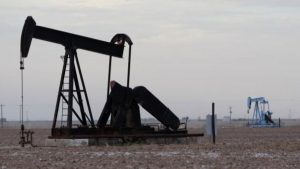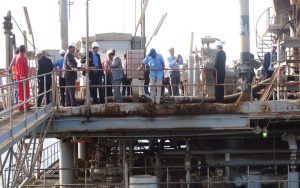By Libya Herald reporters.

Tripoli and Tunis, 18 October 2016:
Libya has restarted production from the Waha fields bringing the country’s total output to 580,000 barrels per day, up some 80,000 bpd since the National Oil Corporation’s last posted figure.
A NOC executive was reported by Reuters to have said that oil from the fields, which are Libya’s oldest, was not being pumped to Sidra, as in the past. The infrastructure there, including the tank farm, was extensively damaged in separate attacks by Misratan Libya Dawn Forces in December 2014 and IS terrorists this January. The production, which actually began last week, is instead being diverted to Ras Lanuf.
After the Revolution, the Waha fields had a capacity of around 350,000 bpd. Over and above reservoir management issues, to bring these and other fields back to their full production will require considerable work.
NOC Chief Mustafa Al-Sanallah has said that engineers are working “day and night” to fix damaged infrastructure. Sanallah and a team of NOC’s senior officials from Tripoli have been touring the Oil Crescent in recent days to check progress on Libyan production hitting the 900,000 bpd December target that he announced last month. Their visits included the Hariga export terminal in Tobruk as well as the town’s refinery.

Sanallah took the opportunity to point out that that the country was losing up to 400,000 bpd of export earnings from the El Fil (Elephant) and Sharara fields in the west because of the closure of a pipeline by Zintan. He said that NOC planned to take court action against those who had turned off the pipeline valves. He repeated that this interruption had so far cost Libya $27 billion which, he added, was money urgently need to rebuild the economy, restore peace and recover from an “unparalleled disaster”.
Apart from security, the biggest constraint facing NOC is money for equipment and people, said John Hamilton a director of Cross-border Information. He cited, as an example of the technical challenges, the pre-revolutionary need for more power generation in the supergiant Sarir field, in order to increase supply to Hariga.
“Then they need to get the terminals operating”, Hamilton told the Libya Herald,“They probably have to do maintenance on some pipelines. And they have to rebuild the logistical bases. Engineers in the desert need places to sleep and eat”.
Then, he said, it was a question of bringing the field back on, well by well. “Some will start producing immediately, others won’t”.








